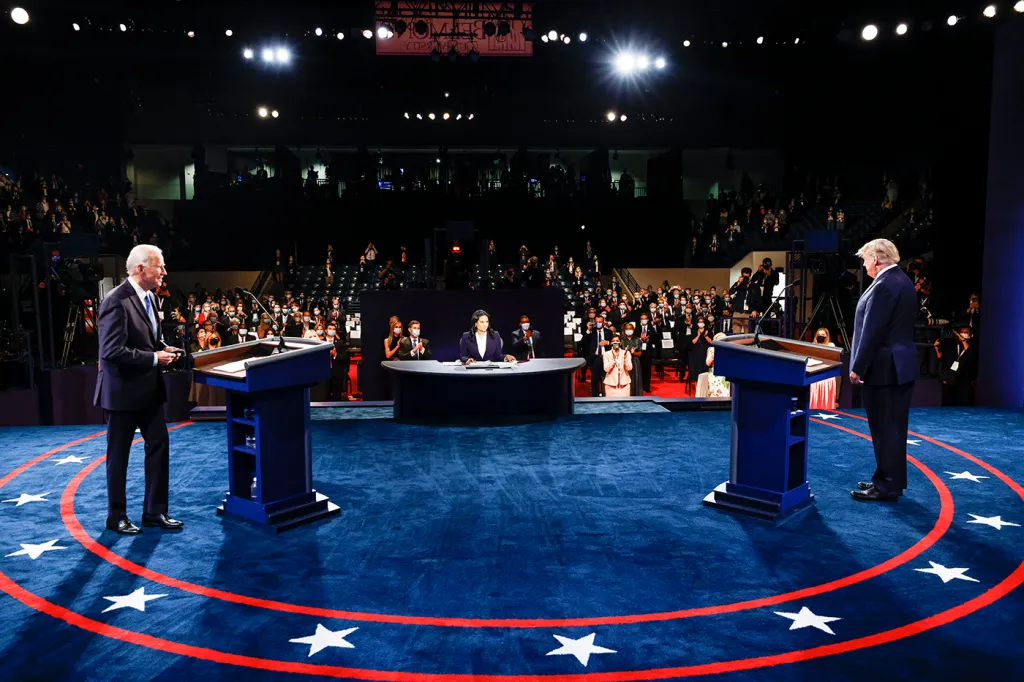Open, constructive debate is the keystone of a functioning democracy, and no debates in America are more visible, or consequential than those that take place between Presidential candidates. These campaign contests not only help to form voters’ understanding of the candidates’ platforms and personalities, they also shape the wider terms of political discourse around the election. But how well does the format really work? To find out, we watched every presidential debate that took place between 2004 and 2020.
In this report, Discourse Correction, we lay out our findings, data, and recommendations for how to fix what are, in many ways, the single most important and influential debates in the world.
The results, as you will see, were disappointing. Over time, the presidential debates have grown less edifying and more confrontational. Moderators have increasingly struggled to run contests that are substantive and respectful. Luckily, there are some relatively simple tweaks to the structure, preparation, and technology of the presidential debates that can make big improvements that benefit the candidates, voters, and our democracy at large.
Read and download the complete report, below, for our findings
















